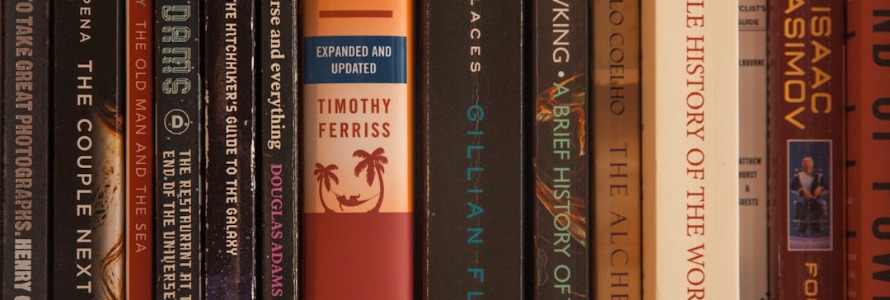
The exploration of the human condition has always fascinated me. The complexities, the nuances, and the ever-evolving nature of what it means to be human have led me to some of the most profound and thought-provoking philosophical writings. These texts delve into the depths of our existence, challenging our perceptions and offering new ways to understand ourselves and the world around us. Here, I’d like to share some essential reads in philosophical writing that have significantly shaped my understanding of the human condition.
1. “Being and Time” by Martin Heidegger
The first time I encountered Martin Heidegger’s “Being and Time,” I was struck by the depth and complexity of his exploration of existence. Heidegger delves into the fundamental nature of being, introducing concepts like “Dasein” (being-there) and “being-in-the-world.” As I navigated through the dense text, I found myself reflecting on my own existence and the ways in which I engage with the world around me. Heidegger’s analysis of temporality and the authenticity of our being challenged me to think more deeply about how I live my life and the choices I make. His work is a profound exploration of what it means to truly exist.
2. “The Myth of Sisyphus” by Albert Camus
Albert Camus’ “The Myth of Sisyphus” is a philosophical essay that explores the absurdity of life and the search for meaning. I remember reading this during a time when I was grappling with existential questions and the seeming pointlessness of certain aspects of life. Camus uses the myth of Sisyphus, who is condemned to push a boulder up a hill only for it to roll back down, as a metaphor for the human condition. His assertion that we must imagine Sisyphus happy resonated with me deeply, offering a new perspective on how to find meaning and joy in the face of life’s absurdities. Camus’ work is a powerful reminder that it is our response to the absurd that defines our existence.

3. “The Republic” by Plato
Plato’s “The Republic” is a foundational text in Western philosophy that explores justice, politics, and the ideal society. Engaging with Plato’s dialogues, I was captivated by the depth of his inquiry into the nature of justice and the role of the philosopher-king. Through the allegory of the cave, Plato illustrates the journey from ignorance to enlightenment, challenging us to seek truth and wisdom. As I pondered his ideas, I found myself questioning the nature of reality and the ways in which societal structures shape our understanding of justice. Plato’s work is a timeless exploration of the human condition and the quest for a just and enlightened society.
4. “Existentialism is a Humanism” by Jean-Paul Sartre
Jean-Paul Sartre’s “Existentialism is a Humanism” is a concise yet profound exploration of existentialist philosophy. I came across this work while studying existentialism, and Sartre’s emphasis on human freedom and responsibility struck a chord with me. He argues that existence precedes essence, meaning that we are not defined by any predetermined essence or purpose but are free to create our own meaning and identity. This idea challenged me to take ownership of my choices and embrace the freedom that comes with being human. Sartre’s work is a powerful reminder of the agency we have in shaping our own lives and the importance of living authentically.
5. “Meditations” by Marcus Aurelius
Marcus Aurelius’ “Meditations” is a collection of personal reflections that offers profound insights into Stoic philosophy and the nature of the human condition. As I read Aurelius’ thoughts on virtue, resilience, and the impermanence of life, I found comfort and guidance in his words. His emphasis on accepting what we cannot change and focusing on what we can control has helped me navigate difficult times with a sense of calm and clarity. Aurelius’ reflections are a timeless guide to living a meaningful and fulfilling life, reminding us that our inner state is what ultimately determines our happiness.
6. “The Second Sex” by Simone de Beauvoir
Simone de Beauvoir’s “The Second Sex” is a groundbreaking work that explores the construction of gender and the experiences of women throughout history. Reading de Beauvoir’s analysis of the ways in which society marginalizes and oppresses women, I was struck by the relevance of her insights to contemporary discussions of gender and equality. Her assertion that “one is not born, but rather becomes, a woman” challenged me to think critically about the ways in which societal expectations shape our identities. De Beauvoir’s work is a powerful exploration of the human condition, offering a profound critique of the structures that define and constrain us.
7. “The Ethics of Ambiguity” by Simone de Beauvoir
Another essential read by Simone de Beauvoir, “The Ethics of Ambiguity,” explores the complexities of freedom, responsibility, and ethics in an uncertain world. De Beauvoir’s examination of the ambiguities of human existence resonated with me deeply, offering a nuanced perspective on the ethical dilemmas we face. Her emphasis on the interconnectedness of our freedoms and the importance of recognizing the freedom of others challenged me to think more deeply about my responsibilities to those around me. De Beauvoir’s work is a profound exploration of the ethical dimensions of the human condition, offering valuable insights into how we navigate our existence.
Reflections on the Human Condition
These philosophical writings have profoundly influenced my understanding of the human condition. Each work offers unique insights into the complexities of our existence, challenging us to think more deeply about our lives, our choices, and our relationships with others. Through their words, these philosophers invite us to explore the depths of our own minds and question the assumptions we hold about the world.
In sharing their ideas, these authors offer us a gift—a glimpse into the profound questions and reflections that have shaped their understanding of the human condition. They remind us that the journey of self-discovery and philosophical inquiry is a lifelong process, one that requires curiosity, introspection, and an open mind. As I reflect on their teachings, I am reminded of the words of Søren Kierkegaard: “Life can only be understood backwards; but it must be lived forwards.” These philosophical writings are a testament to that enduring truth, and I am grateful for the wisdom and insight they have brought into my life.
Exploring the human condition is a journey that continues to unfold with each new perspective and insight. What are some philosophical writings that have shaped your understanding of life? I’m always eager to hear about new ideas and engage in meaningful discussions about the nature of our existence.


